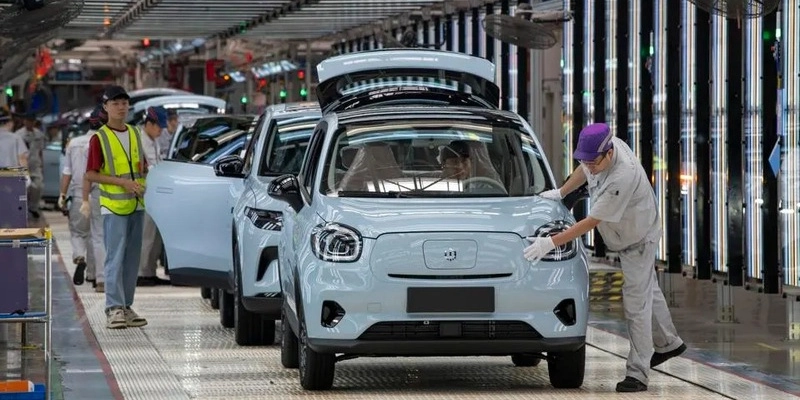Leapmotor, the Chinese electric vehicle manufacturer, has begun production of its T03 electric utility vehicle in Europe.
The manufacturing is taking place at Stellantis’ plant in Tychy, Poland, as part of a joint venture between the two companies.
This move comes amidst a trade dispute between Brussels and Beijing over proposed tariffs on European imports of electric vehicles from China.
According to analysts at Jefferies, who cite information from Leapmotor’s management, the first units rolled off Stellantis’ assembly line last week, with mass production expected to commence in September.
The joint venture plans to produce a second model, the A12 SUV, at the same Polish plant starting in the first quarter of 2025. Leapmotor has also begun preparations for localized component production in Europe.
Manufacturing costs at the Polish plant are estimated to be around 400-500 euros per vehicle, similar to those at its base in China, compared to approximately 1,000 euros in Italy.
The company also intends to manufacture its C10 SUV in China and export it to Europe initially, as this model could be sold at higher prices to offset potential tariff increases.
The European Commission’s proposed tariffs could result in rates of up to 31 per cent on Leapmotor’s imports and up to 5 per cent on component duties.
The joint venture aims to produce between 6,000 and 10,000 units in 2024 (mostly imported) and up to 100,000 in 2025, with Stellantis believing the joint venture could eventually manufacture up to 500,000 vehicles and achieve a gross margin of 20 per cent.
Jefferies suggests that Leapmotor’s production adjustments align with an anticipated change in European regulations, which would require foreign brands to have 40 per cent of their production locally.
This shift affects various aspects of the automotive industry, including batteries, electric propulsion, interior parts, and vehicle coatings.







